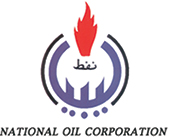By Sami Zaptia.

London, 4 August 2016:
The Tripoli-based NOC will not lift the state of force majeure it has imposed on the eastern oil ports blockaded by regional strongman and Petroleum Facilities Guard (PFG) leader Ibrahim Jadhran until it receives monies owed to it from the Libyan state, a highly placed NOC source confirmed to Libya Herald.
The source, who insisted on anonymity, said that NOC chairman ‘’Sanalla has confirmed that the force majeure will not be lifted except through legal procedures which guarantee the rights of the NOC before its (EPSA) partners’’.
Moreover, the source also confirmed reports that Presidency Council member Musa Koni has promised the NOC that the Serraj-led Presidency Council/Government of National Accord (PC/GNA) will make available a first payment of LD 500 million owed to the NOC as part of its annual running budget which will be followed by another LD 500 million at a later time.
There are considerable running costs to oil production which the NOC will need in order to be able to produce oil, as well as urgent well overdue maintenance let alone repairs to war damage needed at oilfields, pipelines and export terminals and ports.
The NOC source further confirmed that there had been ‘’no deal’’ made with Jadhran or the PFG but that the reopening of the ports and the restart of oil exports will commence upon the payment of the PFG’s unpaid wages stressing that these would be done through the usual legal channels and procedures governing wage payments.
Sanalla was also reported as saying to local Libyan media that it is not unlikely that he might be removed from his position in view of his tough public stance against the PC/GNA striking a deal with Jadhran.
It will also be recalled that Sanalla had reacted strongly to UNSMIL chief Martin Kobler’s meeting with Ibrahim Jadhran, who he labelled as a criminal. He had objected to setting a precedent of paying what he considered extortion money to oil blockaders.
Subsequently, Sanalla had welcomed the announcement by the PC/GNA that the ports would be reopened ‘’unconditionally’’.
Sanalla had threatened to withdraw his support for the Tripoli-based PC/GNA if Jadhran was to be rewarded with a payoff. This had led to speculation that the PC/GNA might be considering removing Sanalla from his post.
So far, there has been no evidence or sign that Jadhran is indeed going to be rewarded with some kind of a deal.
On the other hand, following his controversial meeting with Kobler, Jadhran, for his part, was reported to have said that the terminals would be working again within days.
In practice, and from an oil production and export point of view, this assurance seemed a little unlikely since the Sidra and Ras Lanuf tank farms and associated infrastructure have been badly damaged, first in an attack by Misratan-led Libya Dawn forces in February 2015 and then by IS in October last year and January this year.
It is probably precisely for this reason that international media has been reporting that international oil experts and those in the trade were not expecting Libyan oil production to recommence from the eastern region. The most optimistic analysts said that at best there would be a minimal increased amount of oil exported.
Libyan oil sources have told this newspaper that increasing oil production from the southern oilfields of Fil (Elephant) and the Sharara fields would be a better bet – if a political deal could be struck with the tribes along the south/north all the way to the western port of Zawia – including a deal with Zintan.






